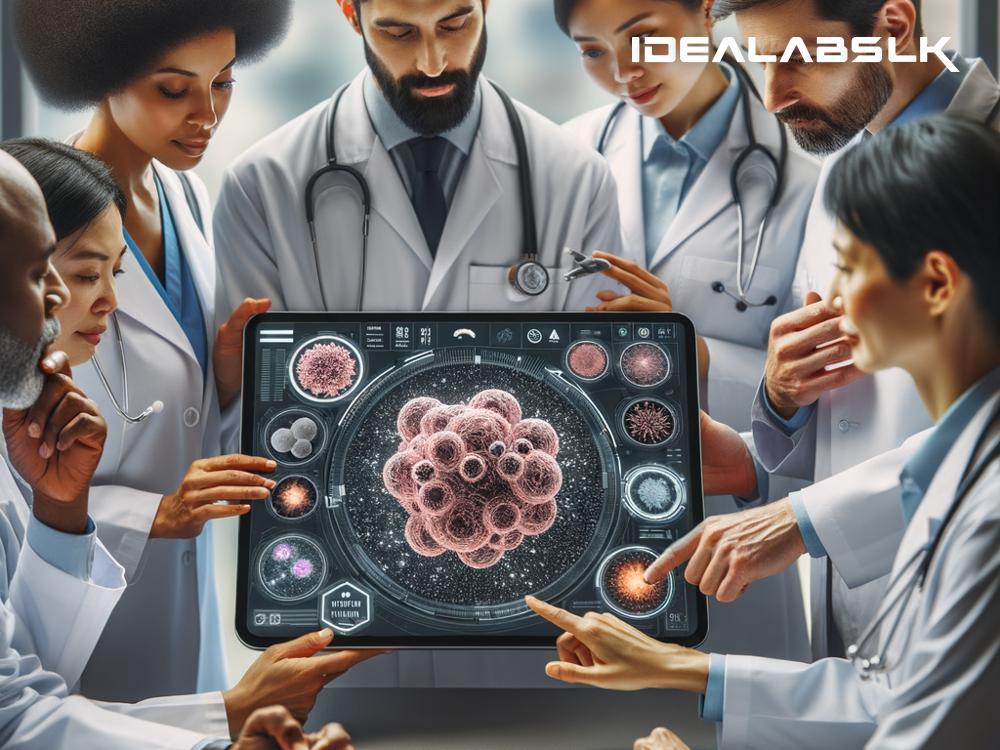How Artificial Intelligence is Making Cancer Treatments More Personal
Cancer is a word that we're all a little afraid of. It's like a thief in the night, affecting millions of people around the globe in so many different ways. But what if I told you that there's a glimmer of hope on the horizon? Something that's changing the game in how we fight this dreadful disease? That glimmer is called Artificial Intelligence (AI), and it's here to make cancer treatments as unique as the patients themselves.
Understanding the Complexity of Cancer
First, let's talk about cancer itself. Imagine your body as a bustling city, with cells as its citizens. Now, most of these citizens play nicely, following the rules. But sometimes, a few become unruly - they start growing uncontrollably and forget how to die. That's cancer. The tricky part? Every person's city and its citizens (cells) are unique. This uniqueness makes treating cancer challenging because what works for one person might not work for another.
Enter Artificial Intelligence
This is where AI steps in, like a superhero in a lab coat. AI can process and analyze vast amounts of information faster than any human could. It can look at the details of a person's cancer - the type, genetic makeup, how it grows - and then compare it with data from millions of other cases. It's like having a super-smart detective who can find the tiniest clues to solve a mystery.
Personalizing Treatment
AI helps doctors create a treatment plan tailored just for you. Imagine going to a tailor who makes a suit that fits you perfectly. Similarly, AI helps in fashioning a treatment that fits your cancer perfectly. By analyzing your specific situation, AI can suggest which medications and treatments have the best chance of working. It's like having a guide in the complex world of cancer treatment, ensuring you get what's most likely to help you.
Speed and Efficiency
Speed is crucial in the fight against cancer. The faster we find the right treatment, the better the chance of beating the disease. AI speeds up this process exponentially. What would take humans years to analyze, AI can do in a fraction of the time. This means quicker decisions about the best course of treatment, saving precious time.
Continuous Learning
The beauty of AI is that it's always learning, getting smarter with every piece of data it analyzes. This means that as more people are treated, the more refined and accurate the treatment recommendations become. It's a never-ending cycle of improvement, with each patient's data contributing to better treatments for future patients.
Beyond Treatment: Prevention and Detection
AI's role doesn't stop at treating cancer; it's also helping in the early detection and even in the prevention of the disease. By learning patterns and signs of cancer in medical images like MRIs or X-rays, AI can spot anomalies that even the most experienced doctors might miss. Moreover, it can analyze genetic information and lifestyle data to predict an individual's risk of developing certain types of cancer, leading to earlier interventions and better chances of prevention.
Challenges and Hope
Of course, integrating AI into the healthcare system isn't without its challenges. Concerns about privacy, data security, and the need for robust regulations are at the forefront. However, the potential benefits are too significant to ignore. As we continue to refine these technologies and address the ethical concerns, AI stands as a beacon of hope for countless cancer patients.
In Conclusion
The journey of a cancer patient is deeply personal, and so should be the treatment. Artificial Intelligence is revolutionizing how we approach this disease, offering tailor-made treatments designed to fight an individual's specific cancer type. By harnessing the power of AI, we're not just improving chances of survival; we're also bringing a level of personalized care that was once thought impossible. The future of cancer treatment is here, and it's more personal than ever before, thanks to AI.

